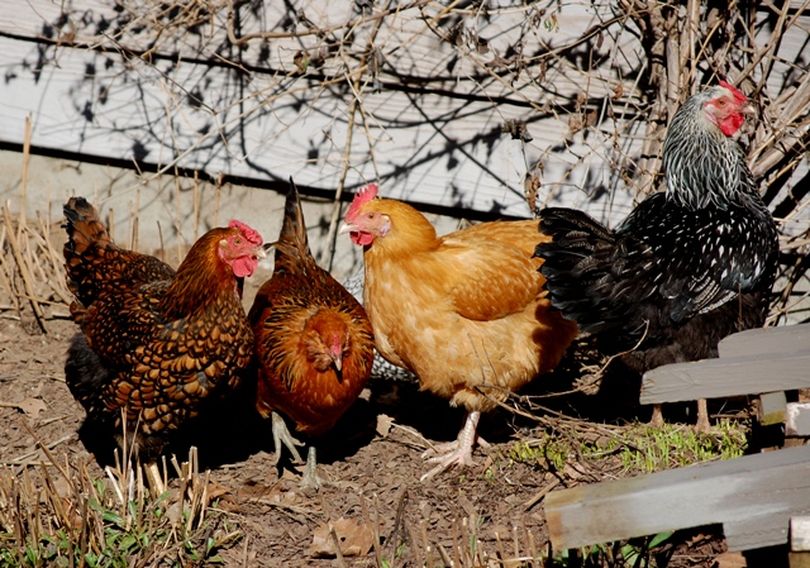How to Get Started Raising Chickens In Your Backyard - Choosing Your Chickens

This is the third post in a series on getting started with a small flock of chickens in your back yard. Scroll down to see the previous two posts.
I'm no expert on chicken breeds but I can share some of the things I've learned when it comes to choosing breeds of chickens. We've really enjoyed having a variety of chickens, as opposed to picking just one breed. A couple of web sites were key for learning about the different breeds:
McMurray's is a hatchery that will mail you your chickens, but they also have a lot of great information on the different breeds. Go here for their selection of standard breed chickens. Backyard Chickens also has a good chart of different breeds.
We've had great luck with one Buff Orpington, two Silver Laced Wyandottes, a Golden Laced Wyandotte and an Ameracauna that lays green eggs. Our girls picked them out so our selection process wasn't too scientific.
For some more experienced information I contacted Gary Angel from Rocky Ridge Ranch. Gary raises chickens both for eggs and meat. He and his wife supply eggs to the Rocket Market,and meat birds to Sante' restaurant along with doing a CSA and selling at Farmers' Markets.
Gary's favorite bird for the home garden is the Buff Orpington. It's a large bird, that is hardy, will continue laying through the winter, and is gentle with a good disposition for kids. I would agree based on our experience. My one caveat would be that the large comb of the Orpington can have issues with frostbite unless you heat the coop or insulate and fully enclose it. Our Buff got nipped a little by the severe cold weather last fall. We made some adjustments to the coop and no problems now.
Gary's next recommendation is the Australorp because it's a big hearty bird that matures faster than other birds and has larger eggs than most.
The other breeds he spoke highly of is the Barred Rock and the New Hampshire Red.
The Wyandottes that we have are generally smaller birds and smaller eggs but they are beautiful and have a good disposition, although more flighty than the Buff.
Other tidbits of wisdom from Gary;
- Don't get the sexlinks. You have to be careful because when you order the australorp or buff, sometimes the hatcheries will send black or golden sexlinks. He didn't elaborate on what's so wrong with the sexlinks.
- Road Island reds are "hornery" and will peck and bully other breeds of birds.
- Make sure the birds are sexed, otherwise you're likely to get half roosters and half hens.
- There is a big problem with Merrick's disease and he advises requesting the birds get vaccinated when they are one day old. This may be less a problem with backyard farmers.
- If you want to raise a turkey, put the little turkey in with the chicks and it
will actually be good for the turkey. The chicks are smarter than the
turkey and will help the turkey navigate the early days. You can
separate them later.
- Most of these breeds have been bred for eggs and make scrawny meat birds even if they say they are good for meat.
- The cornish variety are literally the only kinds of real meat
birds available to people in the US. They have the large breast and
legs that we're used to. Gary says they are "brain dead" birds who are
bred to be raised in large meat bird operations. They won't do much
free ranging even if given the opportunity. He laments that unlike
other countries, we don't have other varieties of meat birds available.
Good luck with picking out your birds.
Chickens are currently available at Aslin Finch, Big R, and probably Northwest Seed and Pet. Call ahead for the schedule of when the chicks come in. They go quickly.
